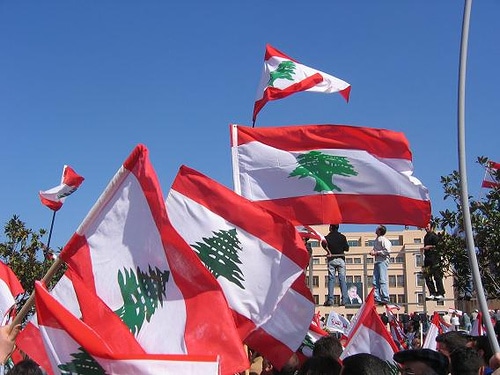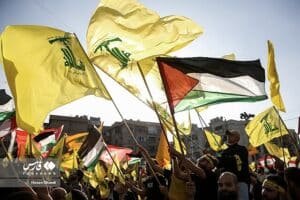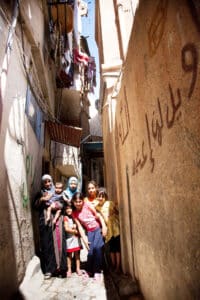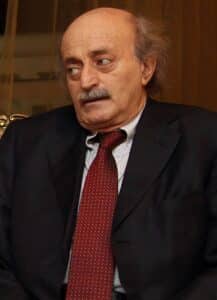On Monday 3 September, the designated Prime Minister of Lebanon, Saad al-Hariri, handed in a cabinet proposal to president Michel Aoun. While some parties viewed the proposal to be ‘stillborn’ and ‘unworkable’, others saw it as a movement in the direction of a breakthrough in the cabinet formation impasse that has been impacting Lebanon since the outcome of this year’s May general elections. Three days later, on Thursday 6 September, Aoun announced his judgement of the proposal, which contained reservations on the Prime Minister’s division of ministerial posts among the country’s rivalling political parties.
After handing in the proposal, Hariri stated that he had taken the interests of all parties into consideration, to form a ‘national unity government’ that would require ‘sacrifices from all parties’. While the contents of the proposal remained confidential, several Lebanese media outlets got hold of them.
Division of ministries
Hariri proposed to divide a total of thirty ministers’ posts among the six largest political parties, one of which is a combination between the AMAL-movement and Hezbollah. The proposed division is as follows:
Political party | Amount of ministerial posts | Portfolios |
Free Patriotic Movement (FPM) and president | 10 | Energy, Foreign Affairs, Defence, three State Ministers, Deputy Prime Minister and three unknown portfolios |
Future Movement (FM) | 6 | Telecommunication, Interior, State Minister and three unknown portfolios
|
Lebanese Forces (LF) | 4 | Education, Justice, Agriculture and Culture |
Progressive Socialist Party (PSP) | 3 | Social Affairs, State Minister and a ‘yet to be allocated’ portfolio
|
AMAL-Hezbollah combination
| 6
|
|
Marada Movement | 1 | Public Works and Transportation |
In the current government, there are twenty-seven ministerial posts. The new proposal adds three; it is not clear which portfolios these are.
Criticism by president Aoun
In his judgement of Hariri’s proposal, Aoun has pronounced several reservations on the distribution of the ministerial posts. First of all, the president recommended that the portfolio of Justice, in the proposal allocated to the LF, be moved to his own party, the FPM, and maintained this even after Hariri explained to him that he has discussed his allocation with the current FPM minister of Foreign Affairs, Jebran Bassil. In fact, Aoun recommended that Hariri rethink the entire amount of posts given to the LF, and in particular the lack of a ‘sovereign post’. Next, Aoun disagreed with the amount of posts given to the Marada Movement and the PSP. Last but not least, Aoun wanted to see added a post for a Sunni minister, that he himself will appoint.
Criticism by rival parties
With the contents of the proposal known, two Lebanese parties in particular have expressed themselves on the issue and on the amount of ministerial posts they will receive if it is carried through. Aoun’s FPM is critical of the more general division of power that Hariri proposes, saying that it unjustly takes power away from the president. They argue, as does Aoun himself in his judgement, that the president should be enabled to exercise his designated role in the formation of the cabinet, which they state does not happen in Hariri’s proposal. The LF in turn does not agree with their designated five ministerial portfolios. It strongly stresses that it should receive at least five, including a ‘sovereign post’, as Aoun also mentioned in his judgement. The LF also express their discontent at the improbability of the Lebanese political impasse to be broken, and imply that this proposal might affect general national stability.
Despite the criticism the proposal has received so far, Hariri continues to defend it, saying that he finds his division to be fair and that he remains both optimistic and committed to forming a cabinet. He is also annoyed by what he views as ‘deliberate obstruction’ of his efforts by yet unnamed parties.
Lebanon has seen lengthy cabinet formation processes in the past, with a lot of effort to keep a representational balance between the many ethnic and religious groups in the country. Some rules have been established to guide this process. The president, for example, must be a Maronite Christian, and the Prime Minister must be a Sunni Muslim. However, all groups demanding what they see as a fair share of political representation mean a good deal of issues to be taken into consideration for the Prime Minister tasked with forming a cabinet.
National and economic stability on the line
With important parties critical of the proposal, it seems unlikely that it will be implemented as such and that a cabinet will be formed in the near future. This may have serious implications on not only the implementation of new policies carrying out due changes, but also on its economy. Officials from the European Union, the United Nations and the United States have implied that financial aid to Lebanon may come to a standstill if the impasse continues, and that money may be transferred to other countries instead. This would have consequences for the country’s already highly indebted economy. Also, the International Monetary Fund demands that Lebanon implements changes in its financial policy in order to contain its growing debt. Further delay in the formation of a cabinet that will address these issues, thus adds to the economic instability, which the Speaker of the Parliament, Nabih Berri, already determines a ‘national crisis’ as it is. He urges the political parties to overcome their differences and to cooperate in the interest of Lebanon’s general and economic stability.
Sources: All Arabia English, NNA, The Logistics Capacity Assessment, loerientlejour, loerientlejour II, Naharnet, Naharnet II, Naharent III, Reuters, Reuters II,
Photo:Flickr



